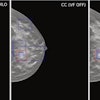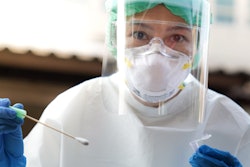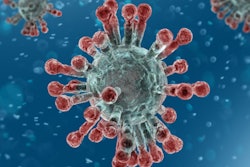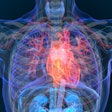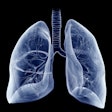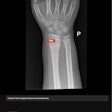
The European Institute of Innovation and Technology (EIT) Health announced that it plans to spend 6 million euros to support development of "rapid response" research for COVID-19.
The funds will go to 14 projects underway across Europe, including one on teleradiology and artificial intelligence and an ultrasonographic lung simulator. The projects cover biotechnology, diagnostics, digital health, and medical technology, and they will be run by 36 partners, EIT Health said. They will be completed by the end of the year.
In addition to FastRAI, a project led by the Technical University of Munich that will develop a COVID-19 clinical triaging tool based on teleradiology and artificial intelligence, and Ultrasonographic Lung Simulator, a project led by the Medical University of Lodz in Poland that will train clinicians to diagnose COVID-19-related lung disease, the projects include the following:
- CAR3D (COVID Advanced Response using 3D printing technologies), led by Hospital Sant Joan de Déu in Spain, will create reference designs for sanitary products in relation to COVID-19 to address the shortage of medical and sanitary supplies.
- Certify.health, led by Hospital Clinic de Barcelona, will evaluate the potential of COVID-19 antibody testing.
- Cheap and Superior Long-Lasting Anti-SARS-CoV-2 Bleaching Polymers, led by Technion in Israel, will develop antiviral polymer disinfectants.
- COVERAGE-Immuno, led by INSERM in France, will conduct a clinical trial to evaluate the effectiveness of various experimental treatments that may prevent hospitalization and death of patients diagnosed with COVID-19.
- Covidom Community, led by Assistance Publique - Hôpitaux de Paris (AP-HP) in France, will create a web application to manage patients infected with the virus at home via telemonitoring.
- CoViproteHCt, led by the Technical University of Munich, will develop and validate assays to characterize protective immune responses that can be used to identify individuals with COVID-19 antibodies.
- NanoDx COVID-19, led by INSERM in France, will develop a nanoporous based next-generation assay for the monitoring of patients with COVID-19 to support the detection of worsening COVID-19 cases as well as the identification of immunized patients and asymptomatic carriers.
- PlasmonDetect, led by Technical University of Denmark, will utilize plasmonic strand-displacement amplification assay for rapid detection of SARS-CoV-2.
- ProCop, led by AP-HP in France, will focus on identifying liver injury associated with COVID-19.
- Rapid and ultrasensitive point-of-care diagnostic test for COVID-19, led by Imperial College London, will develop a test for COVID-19 to improve the speed and ease of diagnostic testing.
- SDx SARS-CoV2, led by the University of Tartu in Estonia, will develop at-home diagnostic testing of individuals potentially infected with COVID-19.
- ViruShield, led by Institut für Textiltechnik (ITA) der RWTH Aachen University in Germany, will develop an inexpensive, readily available, washable, and reusable personal protective equipment (PPE) fabric.



